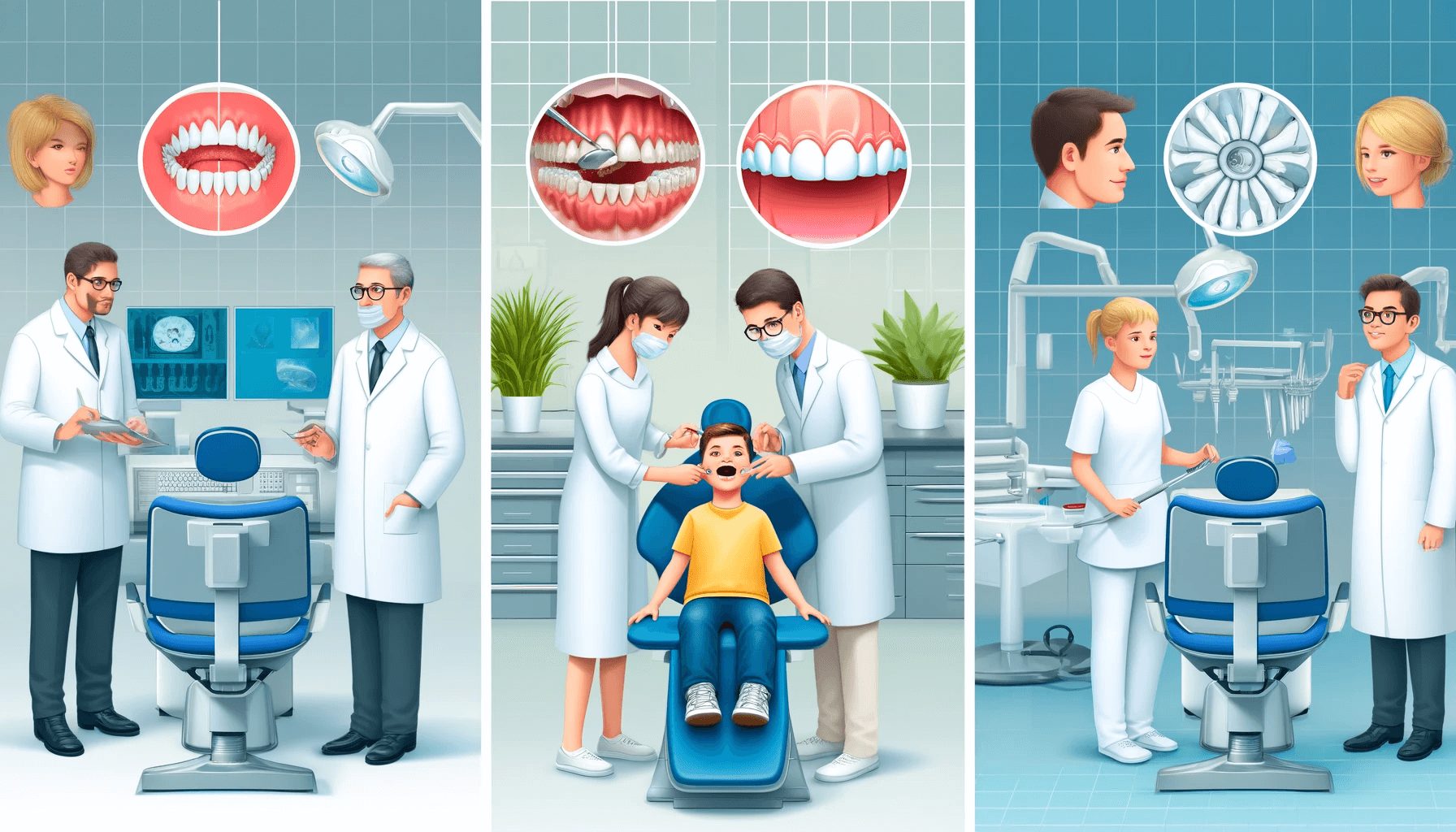Dentist vs. Dental Therapist vs. Dental Hygienist
December 17, 2024

Whether you’re a dental student exploring your career options or a professional seeking clarity about the roles in dentistry, understanding the distinctions between a Dentist, Dental Therapist, and Dental Hygienist is essential. Each role plays a crucial part in oral healthcare, but their responsibilities, training, and career trajectories differ. In this blog, we’ll break down each role and explore the opportunities available for each profession.
The Role of a Dentist
What Do Dentists Do?
Dentists are primary oral healthcare providers responsible for diagnosing, preventing, and treating oral diseases and conditions. Their work includes performing complex procedures like fillings, root canals, crowns, bridges, extractions, and cosmetic treatments such as veneers and whitening.
Education and Training
- Typically, becoming a dentist requires completing a Bachelor of Dental Surgery (BDS) or equivalent degree, which takes around 5 years.
- Postgraduate training is available for dentists who wish to specialize in areas such as orthodontics, endodontics, oral surgery, or periodontics.
Career Opportunities
Dentists have various opportunities across:
- NHS and private dental practices
- Hospitals and community dental services
- Specializations requiring additional training
- Research, teaching, and academia
Why Become a Dentist?
If you enjoy problem-solving, surgical precision, and improving patients’ oral and overall health, becoming a dentist is both challenging and rewarding.
The Role of a Dental Therapist
What Do Dental Therapists Do?
Dental Therapists are mid-level oral healthcare professionals who perform many treatments that overlap with dentistry but focus more on preventative care and routine procedures. Their responsibilities include:
- Carrying out fillings and extractions (on deciduous teeth)
- Placing fissure sealants
- Taking and interpreting radiographs (X-rays)
- Educating patients on oral hygiene and disease prevention
Education and Training
- Dental therapists usually train via a BSc in Oral Health Science or a related program. This course typically lasts 3 years and qualifies them as both Dental Therapists and Dental Hygienists.
- Therapists can work independently within their scope of practice, often under the prescription of a dentist.
Career Opportunities
Dental Therapists work in:
- NHS and private practices
- Community dental services
- Schools, promoting child dental health
Why Become a Dental Therapist?
Dental Therapy offers a more patient-centered approach, focusing on improving patient education and carrying out vital routine care that significantly impacts oral health outcomes.
The Role of a Dental Hygienist
What Do Dental Hygienists Do?
Dental Hygienists focus primarily on preventative care and the treatment of gum disease. They play a key role in helping patients maintain good oral health by:
- Cleaning teeth and removing plaque and calculus (scaling and polishing)
- Providing oral health advice tailored to patients’ needs
- Offering treatments like fluoride application to prevent decay
Education and Training
- Training to become a Dental Hygienist involves completing a Diploma in Dental Hygiene or a BSc in Oral Health Science, which often overlaps with Dental Therapy qualifications.
- The course usually lasts 2-3 years.
Career Opportunities
Dental Hygienists can work in:
- NHS or private dental practices
- Specialist periodontal practices
- Community settings, focusing on preventative care
Why Become a Dental Hygienist?
For those passionate about patient education, preventive healthcare, and flexible working hours, dental hygiene offers an excellent work-life balance.
Dentist vs. Dental Therapist vs. Dental Hygienist: Key Differences
| Role | Training Duration | Primary Focus | Scope of Work |
|---|---|---|---|
| Dentist | 5+ years | Comprehensive oral healthcare | Diagnosis, treatment planning, complex procedures |
| Dental Therapist | 3 years | Preventative and routine care | Fillings, extractions, patient education |
| Dental Hygienist | 2-3 years | Preventative care and gum health | Scaling, polishing, disease prevention |
Which Path is Right for You?
Choosing the right path depends on your career aspirations, interests, and how long you wish to train. If you enjoy performing complex procedures and leading treatment plans, becoming a Dentist may suit you. If you prefer preventative care and working closely with patients, pursuing a career as a Dental Therapist or Dental Hygienist could be ideal.
Whichever path you choose, each role is vital in delivering exceptional oral healthcare and improving patient outcomes.
Find Your Next Dental Role with MedMatch Dental
At MedMatch Dental, we specialize in connecting talented dental professionals with their ideal roles. Whether you’re looking for opportunities as a Dentist, Dental Therapist, or Dental Hygienist, we have a range of vacancies tailored to your career goals.
Start your career journey today – Browse Jobs on MedMatch Dental



